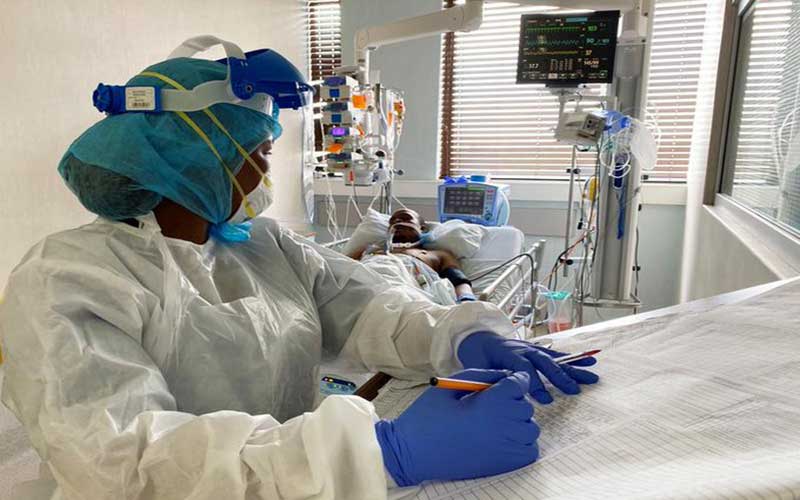×
The Standard e-Paper
Join Thousands Daily

A medical staff attends to a Covid-19 patient at a special ward at Arwyp Medical Centre, as South Africa is about the reach a milestone of 1 million infections, in Kempton Park, South Africa, December 25, 2020. [Reuters]
Covid-19 has exposed societies differently. But needless to say, countries with weak medical and education infrastructure have been exposed more. This exposure should act as a reality check for those charged with governance and prompt them to improve service delivery.